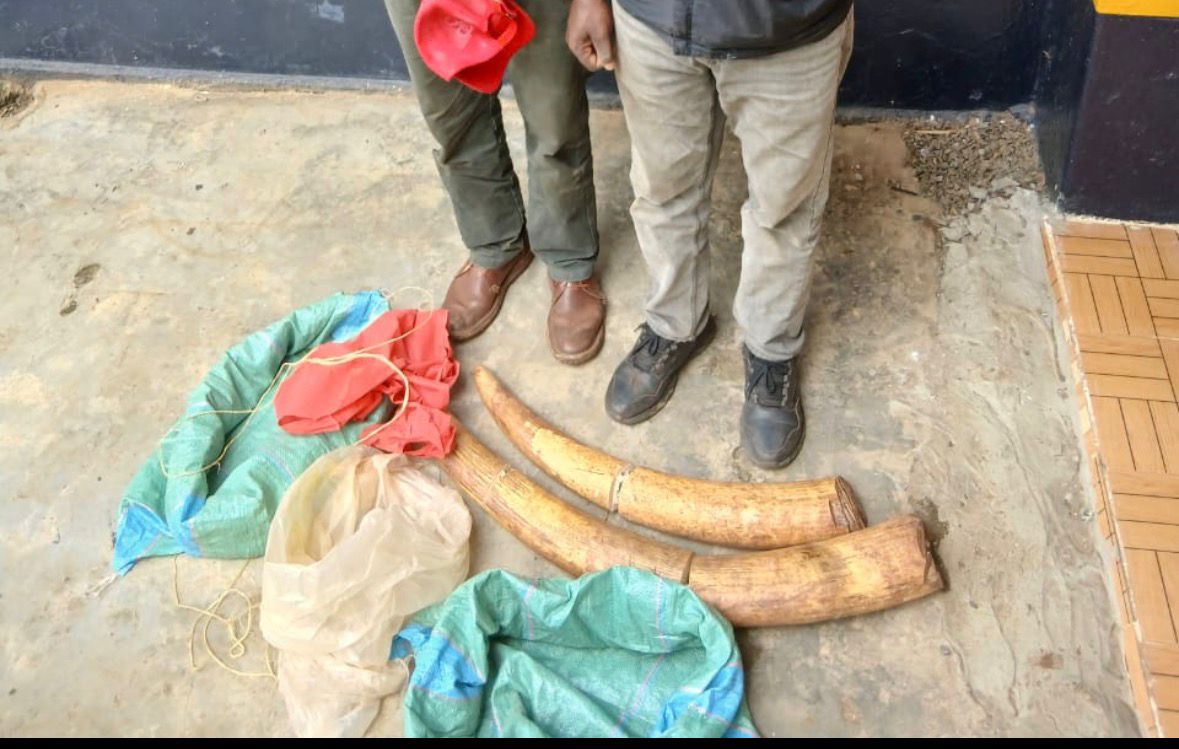

Two suspected traffickers were arrested Saturday night with elephant tusks in Nyahururu Town, police said.
According to police, the arrests were made in the Kwa Wanjiku area, and the suspects had five pieces of elephant tusks weighing about 18 kilos and valued at Sh3.6 million.
They were detained at a local police station pending arraignment on November 17, 2025, police said. Cases of trafficking of elephant tusks have been rampant despite tough laws governing the crime.
Police said the suspects will be charged with the offense of being in possession of wildlife trophies of endangered species, contrary to Section 92(4) of the Wildlife Conservation Management Act 2013.
This is the latest seizure of ivory in a series reported in the past months, indicating that elephants are still being killed despite stringent measures in place to address the menace of poaching.
Elephant tusks fetch a fortune on the black market as demand for ivory in the East continues to fuel the illicit trade, especially from Africa.
Officials say that despite a ban on the international trade in ivory, African elephants are still being poached in large numbers.
The illegal ivory trade is mostly fueled by demand in Asia and the Middle East, where elephant tusks and rhino horns are used to make ornaments and traditional medicines.
As part of efforts to stop the menace, Kenya has started using high-tech surveillance equipment, including drones, to track poachers and keep tabs on elephants and rhinos.
Kenya Wildlife Service and stakeholders have put in place mechanisms to eradicate all forms of wildlife crime, particularly poaching.
These mechanisms include enhanced community education, interagency collaboration, and intensive intelligence-led operations, among others. These efforts led to zero rhino poaching in Kenya in 2020—the first time in about two decades.
On April 30, 2016, Kenya set ablaze 105 tonnes of elephant ivory and 1.35 tonnes of rhino horn. Former President Uhuru Kenyatta led world leaders and conservationists in burning the remains of elephants and rhinos killed for their tusks and horns.
Parliament has also passed strict anti-poaching laws, and the government has beefed up security at parks to curb poaching, which threatens the vital tourism industry.

















